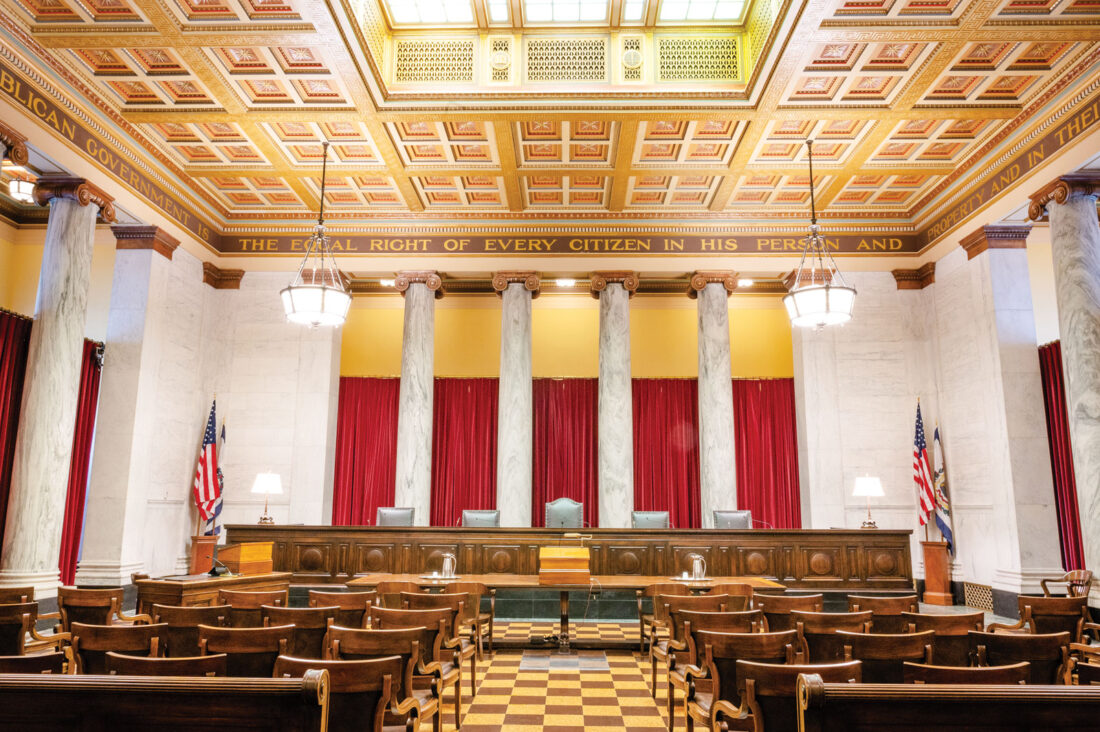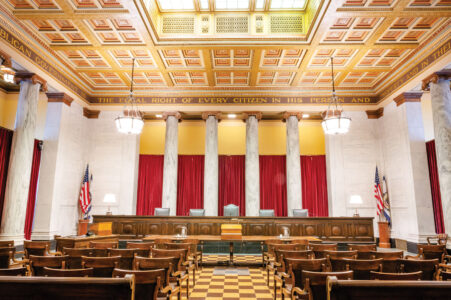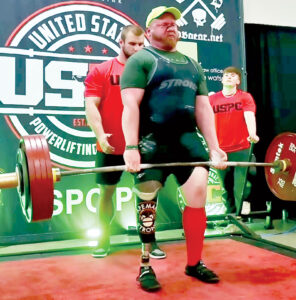W.Va. Board of Education appeals religious vaccine exemption case to state Supreme Court
State board seeks stay of further proceedings in Raleigh County Circuit Court

The West Virginia Supreme Court of Appeals Courtroom in the State Capitol Building in Charleston. (Photo Courtesy/WV Supreme Court of Appeals)
CHARLESTON — The West Virginia Board of Education took the next step to appeal a lower court ruling that kept in place a religious exemption to the state’s compulsory immunization law for the children of three Raleigh County parents.
Attorneys for the state Board of Education filed an appeal Friday afternoon to the West Virginia Supreme Court of Appeals seeking to overturn a preliminary injunction put in place last month by 14th Judicial Circuit Judge Michael Froble blocking enforcement by the Raleigh County Board of Education — as directed by the West Virginia Board of Education — of the compulsory vaccination law due to those parents being granted religious exemptions by the Department of Health.
Froble sided with attorneys for Raleigh County parents Miranda Guzman, Amanda Tulley and Carley Hunter, agreeing that the Equal Protection for Religion Act (ERPA), passed in 2023, allows for a religious vaccine exemption as provided by a January executive order issued by Gov. Patrick Morrisey.
State code requires children attending school to show proof of immunization for diphtheria, pertussis, tetanus, polio, measles, mumps, rubella, varicella and hepatitis B. The only exemption allowed in state law is a medical exemption approved by the Department of Health. In its filing Friday, attorneys for the state Board of Education said Froble went too far in his ruling allowing for Morrisey’s religious exemption.
“The Circuit Court erred as a matter of law by grafting an extratextual religious exemption onto the Vaccine Law,” wrote Chris Smith, an attorney with Bailey and Wyant representing the state board. “As written, the Vaccine Law contains only one recognized exemption, the medical exemption. EPRA does not change that. Neither the text nor the statutory title of EPRA state that EPRA amended the Vaccine Law to include a religious exemption, and the Circuit Court erred when it held otherwise.”
Smith cited previous decisions by the U.S. Supreme Court that determined that there is a compelling government interest in requiring school-age vaccines that doesn’t fall under religious exemptions.
“The right to free exercise of religion is a vital right, but it is not a boundless right,” Smith wrote. “The Supreme Court of the United States has long recognized that the right to free exercise of religion does not give a person ‘freedom from compulsory vaccination’ because the ‘right to practice religion freely does not include liberty to expose the community or the child to communicable disease or the latter to ill health or death.'”
The state board also filed a motion Friday in Raleigh County Circuit Court seeking a stay of further proceedings while the Supreme Court appeal is pending. Froble had scheduled a hearing for a permanent injunction or Wednesday, Sept. 10. In its Supreme Court filing, Smith argued that Froble’s expedited hearing for permanent injunction did not provide the state board or the Raleigh County Board of Education time to conduct discovery.
“The Circuit Court erred by setting this case for permanent injunction–effectively a trial–less than two months after Defendants were served,” Smith wrote. “The West Virginia Rules of Civil Procedure create a framework for scheduling that ensures all parties are able to conduct discovery and develop their case. Despite this, the Circuit Court…set this case for permanent injunction so quickly that it effectively denied Petitioners the opportunity to develop their case.”
Speaking last week during the state board’s monthly meeting in Charleston, state board President Paul Hardesty said he would abide by whatever decision the Supreme Court comes to.
“Whatever decision (justices of the state Supreme Court) render, I may like it, I may not, but I can assure you with everything in me, this board will comply with their decision,” Hardesty said. “We’re not going to comply with an executive order that’s in conflict with a 1937 law. We can’t do that. We’ve been advised by our counsel not to do that.”
Morrisey has remained steadfast in his support for his religious vaccine exemption executive order despite the Legislature not passing a law to codify a permanent religious exemption and despite the state board standing behind the long-standing compulsory immunization law.
“I want every family seeking a religious exemption to the radical state school board policy to know that we have your back and will ultimately win this fight,” Morrisey said last week in a social media post. “The school board is ignoring the religious freedom law and trying to make West Virginia an extreme outlier on vaccine policy (one of only five states nationally to not recognize a religious exemption).”





